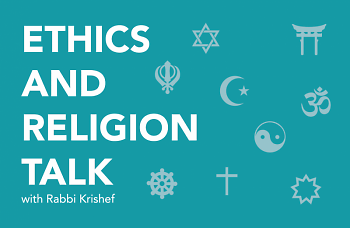Here is the second set of responses to Mary’s question. The first set was published last week.
The Rev. Sandra Nikkel, head pastor of Conklin Reformed Church, responds:
“Let me start by saying that although there is power in prayer, when we pray we are to focus on God, not on the power of prayer. In other words, we must seek his face more than his giving hand. So, whether the person believes in prayer or not doesn't matter as much as believing in the God we pray to. And yes, God does hear the prayers of those who do not believe in the power of prayer.
“Secondly, we pray because we love God. We pray because we trust Him. And we pray because we need Him. Prayer is one of the ways we draw close to God. Prayer is also a way to get to know God--all of him--his heart, his love, and his power.
“Thirdly, prayer changes us. When we pray we make room for God to move in our lives and use our lives to bless others. God releases power and anointing into our lives and in the lives of others in response to our prayers. Prayer can melt a heart of stone. Prayer can set the captives free. Prayer can also give us the strength we need to overcome trials and it can transform them into blessings. So: ‘Do not be anxious about anything, but in every situation, by prayer and petition, with thanksgiving, present your requests to God. And the peace of God, which transcends all understanding, will guard your hearts and your minds in Christ Jesus.’ - Philippians 4:6-7 (NIV)”
Father Kevin Niehoff, O.P., a Dominican priest who serves as Judicial Vicar, Diocese of Grand Rapids, responds:
“Yes, God works for those who do not believe in prayer, let alone do not believe at all. Please let me refer you to the life of Saint Monica, the mother of Saint Augustine. Monica had a deep faith in Jesus Christ and was married to a Roman pagan who would not allow Monica to have her three children baptized. Monica pleaded to her husband to allow her to have Augustine baptized because he was gravely ill. Monica’s husband relented, but after Augustine got well, he fell away from any practice of the faith. Monica never gave up praying for her son, who eventually received the necessary conversion. Saint Augustine was canonized in 1303 over 870 years after he died.”
Father Michael Nasser, who writes from an Eastern Christian perspective and is Pastor of St. Nicholas Orthodox Christian Church, responds:
“What an interesting and profound question! Of course we people of faith have our doubts. In fact, faith even assumes the potential for doubt or else it is not even needed. So when we pray, we should, as Christ says, pray with faith, even assuming that whatever we ask for has already been given (see Mark 11:24). But the other, less recognized purpose of prayer is not that we necessarily change God's mind, but our own. When we pray we bring a need before God, but in doing so we see Him more accurately, we see the need more accurately, and we even see ourselves more accurately. An example is praying for someone who is sick. Yes, we want God to heal them, but in praying for them, hopefully I am more inclined to do what I can: visit them, bring them medicines or food, or support them in any way they need. My prayer for them can be the thing that changes me.”
Linda Knieriemen, Senior Pastor at First Presbyterian Church in Holland, responds:
“The most important of the questions you asked is ‘why do we pray’? Many pray as an instinctive cry of the heart. Some pray because it brings peace, clarity, a connection with something, Someone greater than themselves. Those who only pray to get something are confusing God with Santa Claus or a Fairy Godparent and I suspect that makes God grumpy.
“Jesus’ prayer, the Lord’s Prayer, is an ideal prayer. Jesus teaches us to acknowledge God as the Holy One, to pray for the coming of God’s Reign of peace, justice and love now existing only fully in heaven; to ask for the things we need (not want) like food; to ask God’s forgiveness, just as we try to forgive one another; to help us when we are tested and to help us turn from evil. And finally, to again honor and name God as one with power, mercy, glory always.
“Prayers don’t need to be long. A friend who has benefitted from the teachings of AA tells me that the only prayer he prays is ‘Teach me to know your will and to have the courage to do it.’ I suspect that’s the kind of prayer which makes God’s heart glad.”
This column answers questions of Ethics and Religion by submitting them to a multi-faith panel of spiritual leaders in the Grand Rapids area. We’d love to hear about the ordinary ethical questions that come up in the course of your day as well as any questions of religion that you’ve wondered about. Tell us how you resolved an ethical dilemma and see how members of the Ethics and Religion Talk panel would have handled the same situation. Please send your questions to [email protected].
The Rapidian, a program of the 501(c)3 nonprofit Community Media Center, relies on the community’s support to help cover the cost of training reporters and publishing content.
We need your help.
If each of our readers and content creators who values this community platform help support its creation and maintenance, The Rapidian can continue to educate and facilitate a conversation around issues for years to come.
Please support The Rapidian and make a contribution today.
